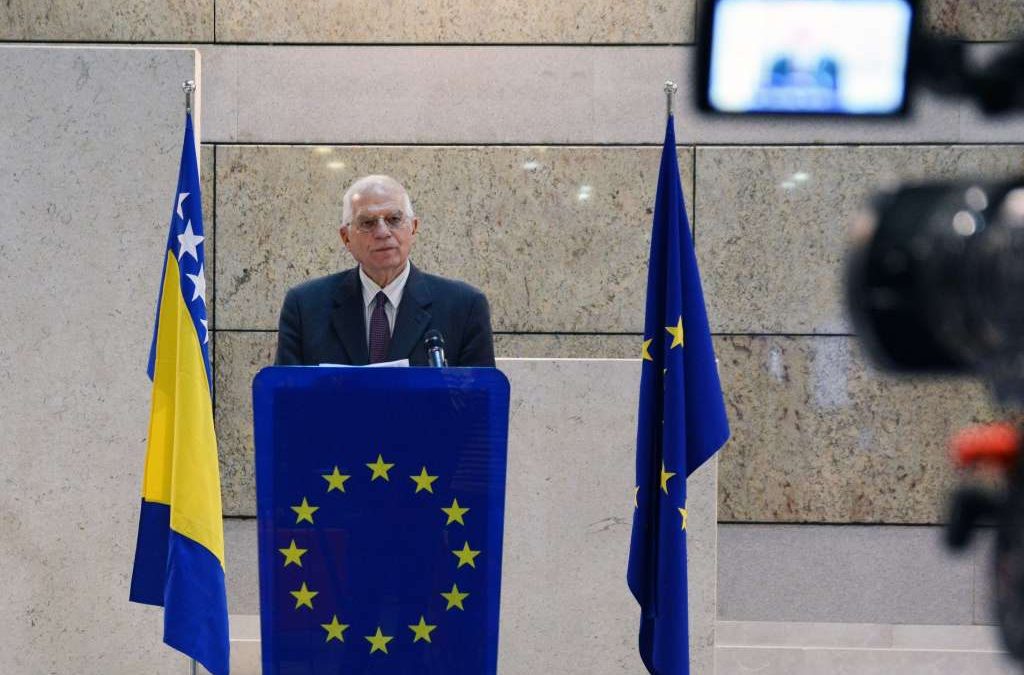BRUSSELS – The High Representative of the EU for Foreign Affairs and Security Policy Josep Borrell and the European Commissioner for Neighbourhood and Enlargement Olivér Várhelyi, on the occasion of the 29th anniversary of the Srebrenica massacre, assessed that it is one of the darkest moments “in modern European history” and called for joint bridge-building towards reconciliation.
“The genocide in Srebrenica, 29 years ago, is one of the darkest moments in modern European history. It is our duty to honor the memory of over 8,300 boys and men who were systematically killed in the hills around Srebrenica,” Borrell and Várhelyi said in a joint statement. At the same time, they called on leaders to reject divisive rhetoric and act with truth, justice, trust, and dialogue. They believe that healing the wounds of the past “requires acknowledging and studying historical facts, honoring and remembering the victims, identifying those still listed as missing, and bringing all perpetrators to justice.” “We must build bridges to reconciliation together. There is no place among us for those who deny genocide, attempt to rewrite history, and glorify war criminals,” stated Borrell and Várhelyi.
They reminded that in March 2024, the European Council decided to open EU accession negotiations with BiH and stated that this is a crucial opportunity for BiH to advance in reforms to strengthen democracy, prosperity, and security, reiterating the commitment to BiH’s future in the EU “as a unique, united, and sovereign country.”
On the occasion of the anniversary of the events in Srebrenica, European Commission spokesperson Peter Stano, during a briefing for journalists in Brussels, when asked to whom it refers that “there is no place for those who deny genocide” in the EU, said that Borrell and Várhelyi’s statement contains the EU’s stance that is reminded of every year, that “anyone who tries to question this genocide and glorify war criminals,” has no place in the EU.
Stano added that, as he put it, “the genocide in Srebrenica is a very unfortunate, tragic, historical fact.” When asked whether the process of Serbia’s accession to the EU could be suspended if the Serbian authorities oppose such declarations, he emphasized that countries in the process of EU accession are evaluated every year in the so-called progress report and receive a summary of what they have done regarding EU criteria, principles, values, as well as what they have not done, which is reflected in the European Commission’s recommendation.(July 10th)
 go to the original language article
go to the original language article
